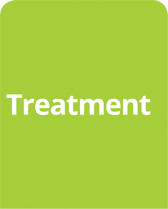Treatment of Ulcerative Colitis
The aim of treatment is to control inflammation, maintain remission and prevent complications, thereby improving quality of life. Treatments include:
1. Anti inflammatory drugs:
- Sulfasalazine (Salazopyrin)
- Mesalazine ( Pentasa, Asacol, Colazide, Salofalk)
- Olsalazine (Dipentum)
They can be given as either a tablet or inserted into rectum as an enema or suppository.
2. Corticosteroids
Steroid preparations given by mouth, injection, suppository or enema, such as:- Prednisolone
- Budesonide
- Hydrocortisone
- Predsol
- Predfoam
3. Immunosuppressants
These are drugs, which affect the immune system. They are generally used to control disease, which is particularly difficult, and to avoid repeated courses of corticosteroids. They also have a ‘steroid sparing’ effect which allows a lower dose to be used more effectively with potentially fewer side effects. Examples include:- Azathioprine
- Methotrexate
- Cyclosporin
- Mycophenolate
4. Antibiotics
Inflamed areas may become infected and require antibiotics such as:- Metronidazole
- Ciprofloxacin
- Clarithromycin
5. Heparin
This is a drug usually given to help prevent, or to treat blood clots. However, preliminary studies (uncontrolled) have demonstrated a beneficial effect in some cases of resistant colitis, possibly due to anti-inflammatory mechanisms, or by other actions affecting the epithelial cells lining the intestine and blood vessels that supply it. Heparin is still the subject of continuing research and is not currently widely used for the primary treatment of IBD, although patients admitted to hospital usually receive heparin and related drugs by injection to reduce the risk of the development of blood clots in the legs (deep vein thrombosis).6. Bulking agents
Rectal or left-sided colitis may be aggravated by right-sided (proximal) constipation. The following preparations may be helpful in providing bulk in the colon which stimulates a bowel motion as fluid is absorbed causing pressure on the bowel wall:- Normacol (sterculia)
- Fybogel, Isogel and Regulan all contain psyllium husk.
- Methylcellulose (Celevac)
7. Correction of dehydration
Water and salts can very quickly be lost from the body due to continued watery or bloody diarrhoea. Oral rehydration solutions, such as dioralyte, may help initially but an admission to hospital for fluids into the vein may be necessary in severe disease.8. Diet
There is no clear evidence that diet has any effect on the treatment of ulcerative colitis but avoiding certain foods may help some people, e.g. milk products may make the diarrhoea and wind worse if you are intolerant to the milk sugar, lactose. Some people believe that it makes the mucus worse also. If you find that this is true for you, then avoid these foods but you should not avoid anything unnecessarily.You may also find that coarse fibre is a problem, (e.g. granary bread and some cereals), particularly when the rectum is sore and inflamed. Constipation is often associated with distal colitis and may aggravate the condition. Therefore, it is important to eat sufficient fibre in the diet in order to prevent this. However, if dietary fibre cannot be tolerated without unpleasant symptoms, a bulking agent is advised instead (e.g. cracked linseed, methylcellulose, Fybogel or Normacol), with an increased fluid intake to soften and regulate the motions.
A high calorie, high protein diet can help replace lost nutrients and regain energy.

